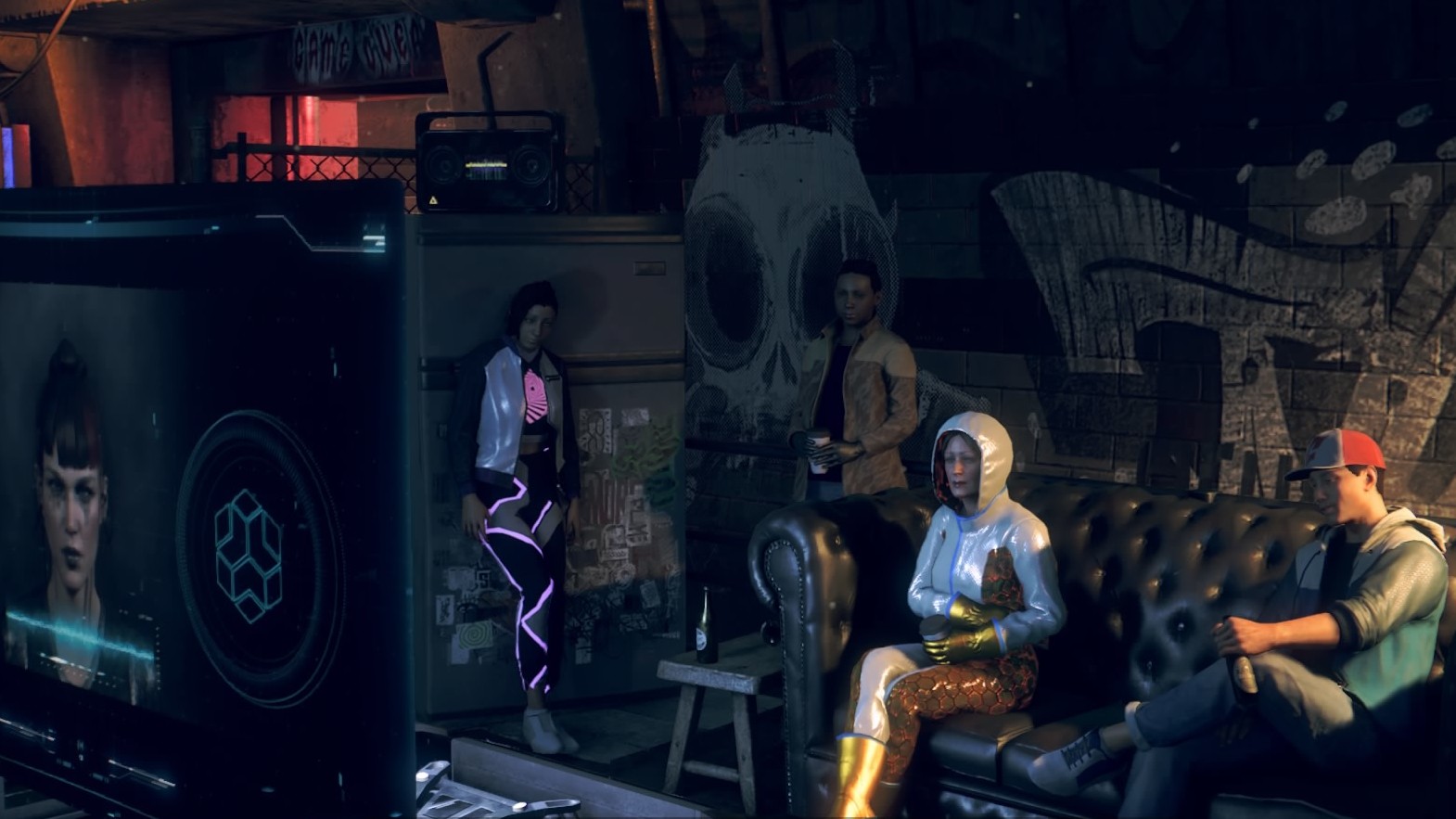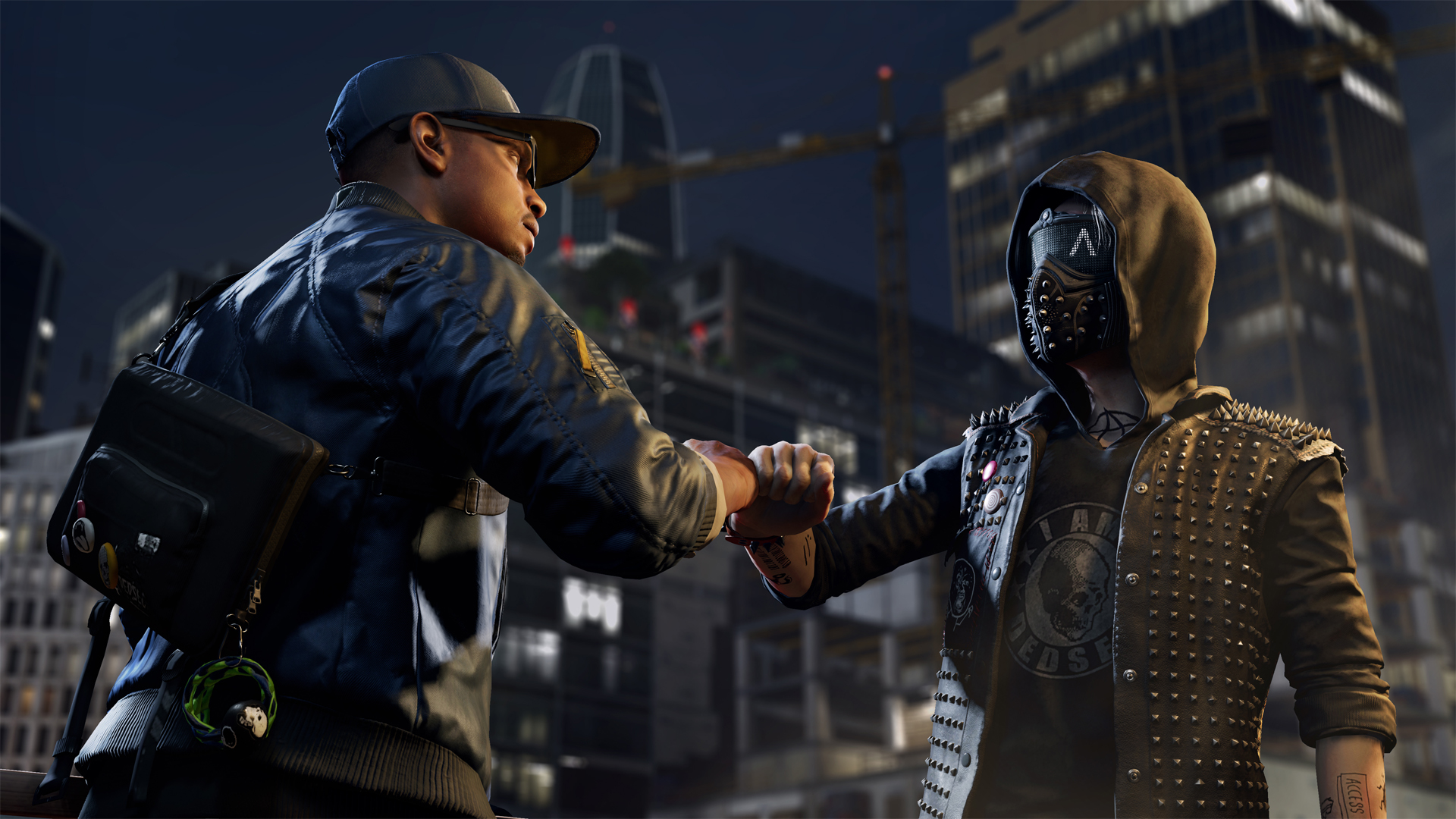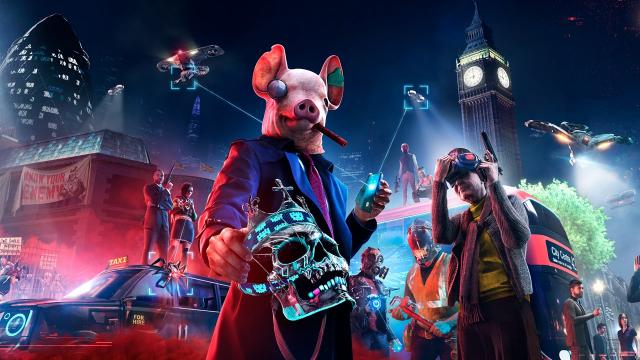The recently released Spider-Man: Miles Morales video game follows the core message from the feature film Spider-Man: Into the Spider-Verse: “Anyone can wear the mask.” But there’s one video game out right now where that’s also true: anyone can wear the mask in Ubisoft’s Watch Dogs: Legion but that doesn’t mean everyone should.
Legion is the third techno-dystopia video game in the ongoing Watch Dogs series. It’s about a group of hackers named DedSec who “fight the power” to protect people’s privacy, data, and free will from government overreach and greedy software developers. The latest game heads to London for a worst-case scenario where, after a string of domestic terrorism attacks, a private army has been given carte blanche to control the city with drones, predictive algorithms, and microchips. In response, DedSec has grown from a small group of hackers into an amorphous blob of mask-wearing vigilantes that anyone can be brought into. They are Legion, for they are many.
[referenced id=”1289446″ url=”https://gizmodo.com.au/2020/08/are-we-already-living-in-a-tech-dystopia/” thumb=”https://gizmodo.com.au/wp-content/uploads/2020/08/24/amabyg2enkp6h5zuf1xl-300×169.png” title=”Are We Already Living in a Tech Dystopia?” excerpt=”For the most part, fictional characters rarely recognise when they’re trapped in a dystopia. Watching their neighbours get carted off for harbouring subversive thoughts, they almost never say, “I wish we weren’t living in this dystopia.” To them, that dystopia is just life. Which suggests that — were we, at…”]
Ubisoft has experimented with something pretty revolutionary for Watch Dogs: Legion, in that every single NPC you come across can be recruited into DedSec. From that point on they are a playable character that you can turn to anytime you like. Each of them has one or more skills that can assist with different types of missions — whether it’s carrying a certain kind of weapon, having a faster “hack rate,” or being able to control drones without needing special upgrades. There are a few folks who come with penalties, like limited mobility due to age or a shopping addiction (a few of them fart a lot). Then there are those who come with unique abilities that no one else has, like the Robotic Beekeeper.

This isn’t the first video game to offer a wide variety of NPCs to become part of the gaming experience — for example, Dragon’s Dogma allowed players to build their own teams of “Pawns” using either the pre-set options or customisable NPCs created and shared by other players online. But this is the first game of this calibre, where literally anyone in the city can become the protagonist…for as long or as little as the player wants. In theory, it’s a fantastic concept, playing on the inspirational message from Into the Spider-Verse that anyone can wear the mask. Unfortunately, the game fails in the execution.
The problem with Legion is that all the characters are homogenized piles of nothing, with no distinct personalities or traits to set themselves apart from another. This wouldn’t be a problem if this was a generic fighting game where we care more about the combat than the characters, but this is a story-based linear video game — with a concrete plot, narrative, villain, and goal — without one or more linear protagonists to go on the journey with. Instead, every character acts the same way and says the same things, with very little deviation to make players feel like they’ve embodied a character with their own backstory, viewpoints, and behaviours. For example, every time you hand-off control from one character to another, their interaction usually boils down to: “It’s time to fight the power,” followed by “Hell yeah, I’m down.”
This is largely because of the behind-the-scenes mechanics, which are impressive on paper but yield disappointing results onscreen (anyone who played Assassin’s Creed Unity, with its overpopulated masses of NPC mobs, is very familiar with Ubisoft’s track record of cool ideas that fail in execution). In an interview with Edge Magazine (as shared by Gamesradar), creative director Clint Hocking said they created “20 different versions of the script” that they had actors voice, using AI technology to then turn each of those individual actors into dozens of potential characters. What results is meeting hundreds of characters who technically sound different but don’t sound unique. They all say slightly different versions of the same general script, so they come across as clones instead of identifiable protagonists. It also doesn’t help that the technology makes many of them sound jilted and unnatural, something on display in the following video.
This isn’t just limited to how the characters look and sound, it’s also in how they exist in the world. You can tell that Ubisoft ran out of time to create variety in the character stories and gameplay because eventually everything starts repeating itself. Different NPCs will share “unique” skillsets (carrying a wrench is the most popular) or have similar recruitment missions, which usually boil down to “Can you rescue this person or hack this terminal for me?” Then after they’re recruited, they are folded into your collective and become lifelong DedSec members who bring a few cool tricks but nothing resembling a unique voice or perspective. And for some reason, they’re all instantly pro-hackers! Every recruit can perform complex hacks and melee attacks, skills that were presented as pretty hard to master in the previous two games. But now, no training required. Better look out for grandma!
I can’t help but compare Legion to its predecessor Watch Dogs 2, in particular to the lead character of Marcus. In that video game, he went on a journey similar to the one we’re taking in Legion, but we were more invested then because we were going on that journey through his eyes. We were seeing his thoughts, choices, and mistakes. We grew as he grew, and felt triumph when he succeeded. There’s no single person like that in Legion. Even the characters with totally unique skillsets, like the Robotic Beekeeper, feel generic. She only has one catchphrase when she lets loose her bees, and trust me it gets annoying after a while.

Just like in movies, story-based linear video games need one or more characters to identify with. We need a foundation for the story’s moral and ethical issues, someone to bounce off of so we can better understand what’s happening and judge whether it’s right or wrong. This is especially true in a series like Watch Dogs, which deals in a Black Mirror-esque vision of the near-future that — at least in the case of Watch Dogs 2 — is terrifyingly accurate. Watch Dogs: Legion would’ve been better served with a smaller collection of truly unique recruitable protagonists, 5-10 people with their own personalities and voice actors, that could exist alongside the more generic NPC you pick up along the way. That way you’re still able to play as anyone, but you can still choose to play as someone.
While it’s true that “anyone can wear the mask,” the mask is only as worthy as the person wearing it. If you don’t care about who’s underneath, they haven’t truly earned it.
Watch Dogs: Legion and Spider-Man: Miles Morales are both available on Xbox and Playstation systems.
